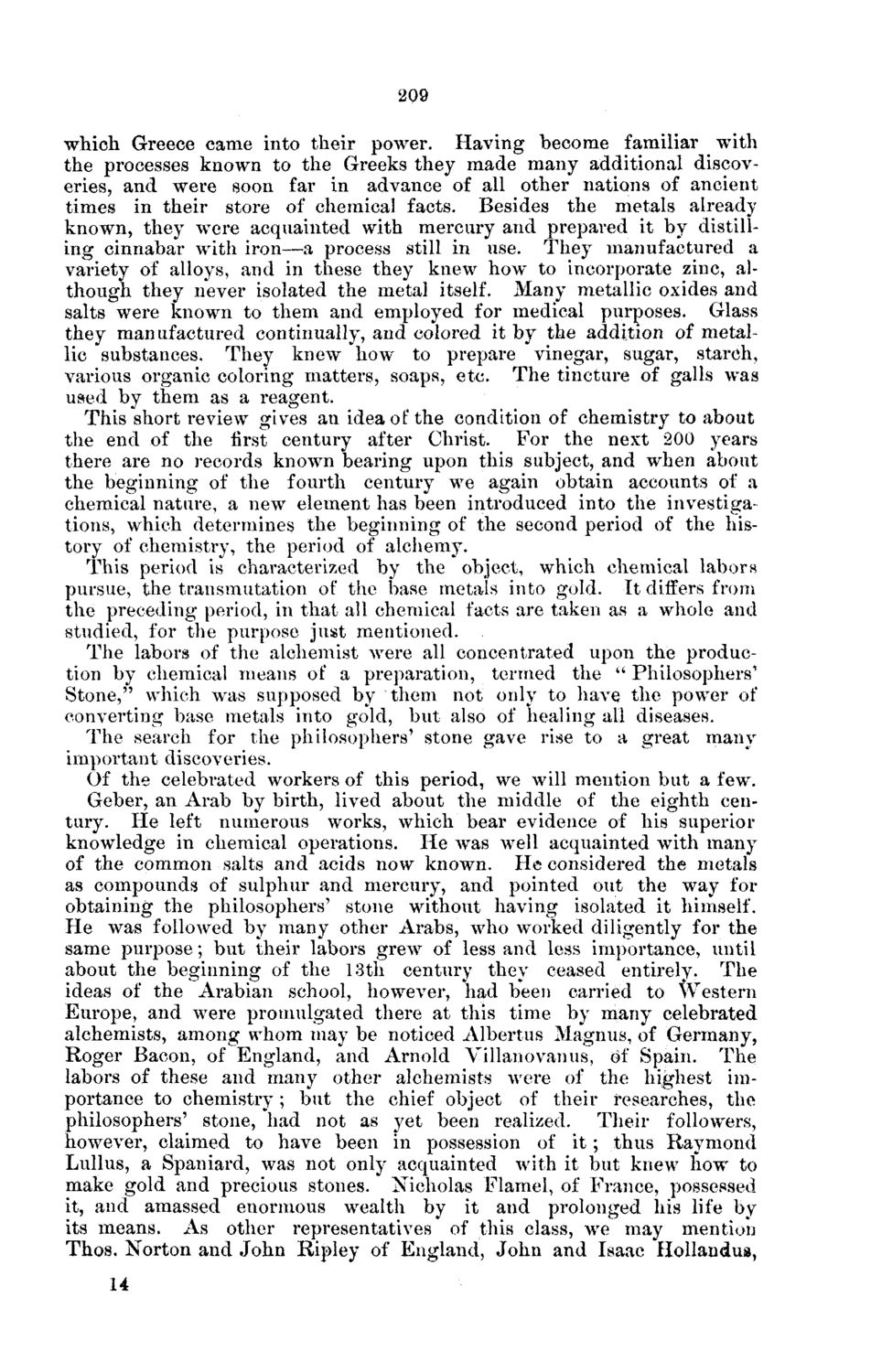| |
| |
Caption: Board of Trustees Minutes - 1878
This is a reduced-resolution page image for fast online browsing.

EXTRACTED TEXT FROM PAGE:
209 which Greece came into their power. Having become familiar with the processes known to the Greeks they made many additional discoveries, and were soon far in advance of all other nations of ancient times in their store of chemical facts. Besides the metals already known, they were acquainted with mercury and prepared it by distilling cinnabar with iron—a process still in use. They manufactured a variety of alloys, and in these they knew how to incorporate zinc, although they never isolated the metal itself. Many metallic oxides and salts were known to them and employed for medical purposes. Glass they manufactured continually, and colored it by the addition of metallic substances. They knew how to prepare vinegar, sugar, starch, various organic coloring matters, soaps, etc. The tincture of galls was used by them as a reagent. This short review gives an idea of the condition of chemistry to about the end of the first century after Christ. For the next 200 years there are no records known bearing upon this subject, and when about the beginning of the fourth century we again obtain accounts of a chemical nature, a new element has been introduced into the investigations, which determines the beginning of the second period of the history of chemistry, the period of alchemy. This period is characterized by the object, which chemical labors pursue, the transmutation of the base metals into gold. I t differs from the preceding period, in that all chemical facts are taken as a whole and studied, for the purpose just mentioned. The labors of the alchemist were all concentrated upon the production by chemical means of a preparation, termed the " Philosophers 1 Stone," which was supposed by them not only to have the power of converting base metals into gold, but also of healing all diseases. The search for the philosophers' stone gave rise to a great many important discoveries. Of the celebrated workers of this period, we will mention but a few. Geber, an Arab by birth, lived about the middle of the eighth century. He left numerous works, which bear evidence of his superior knowledge in chemical operations. He Avas well acquainted with many of the common salts and acids now known. H e considered the metals as compounds of sulphur and mercury, and pointed out the way for obtaining the philosophers' stone without having isolated it himself. He was followed by many other Arabs, who worked diligently for the same purpose; but their labors grew of less and less importance, until about the beginning of the 13th century they ceased entirely. The ideas of the Arabian school, however, had been carried to Western Europe, and were promulgated there at this time by many celebrated alchemists, among whom may be noticed Albertus Magnus, of Germany, Roger Bacon, of England, and Arnold Villanovanus, of Spain. The labors of these and many other alchemists were of the highest importance to chemistry ; but the chief object of their researches, the philosophers' stone, had not as yet been realized. Their followers, however, claimed to have been in possession of i t ; thus Raymond Lullus, a Spaniard, was not only acquainted with it but knew how to make gold and precious stones. Nicholas Flamel, of France, possessed it, and amassed enormous wealth by it and prolonged his life by its means. As other representatives of this class, we may mention Thos. Norton and John Ripley of England, John and Isaac Hollandus, 14
| |